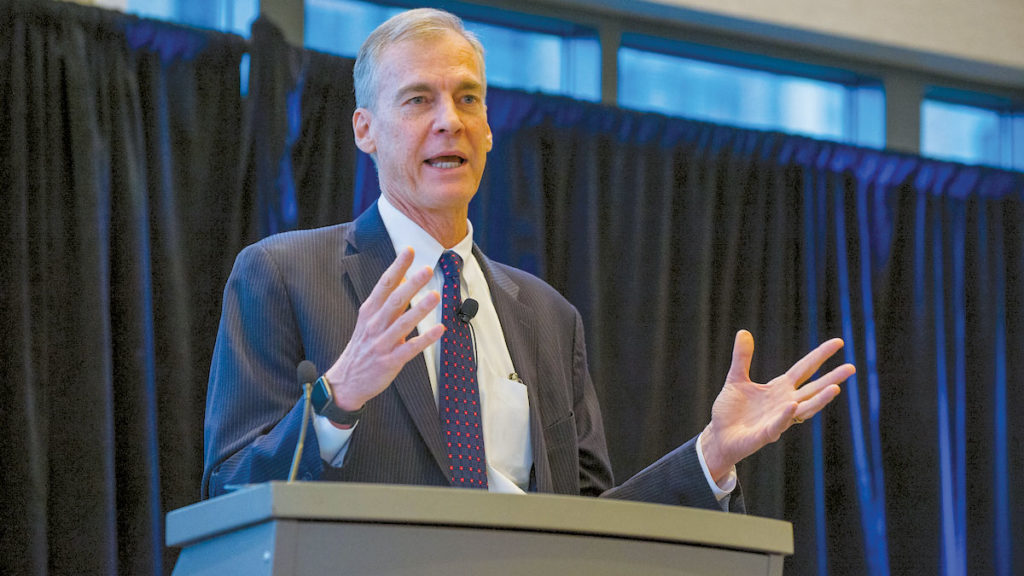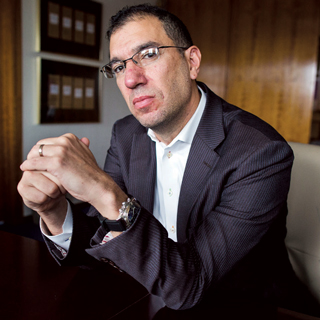
While lamenting senior care’s lack of preparedness for the coronavirus pandemic, two of the biggest U.S. long-term care health authorities agreed Tuesday that operators can still come out ahead when the carnage clears.
“We were completely unprepared for the first wave” of COVID-19, said Mark Parkinson, the president and CEO of the American Health Care Association.
He explained that the insidious rates of asymptomatic transmission upon an unknowing nation were especially harmful. With more than 100,000 COVID-19 deaths attributed to long-term care facilities, COVID-19 has been a “clinical nightmare and a business disaster.”
“Horrendous policy mistakes made at multiple levels created the challenges we had,” he added, referring specifically to lack of access to testing and personal protective equipment while speaking at the online annual meeting of the National Investment Center for Seniors Housing & Care (NIC).
He was resolute, however, in that lessons have been learned, and that puts the industry and fellow caregivers in a much better position to contend with any future threats. In addition, possible vaccines are racing toward approval and the federal government also seems to have acknowledged the industry is an essential sector, delivering it billions of dollars in relief funding.
“People need our services. We have a growing demographic really exploding in the age group we take care of,” Parkinson said. “The demographics are compelling. We will win the public’s confidence back and this will be a good space to be in eventually.”
COVID-19 has been “a nightmare beyond any worst case scenario” but the overriding message is “we’re going to get through this,” he concluded.

Sharing some of that optimism was co-presenter and former acting administrator of the Centers for Medicare & Medicaid Services Andy Slavitt. He praised long-term care operators for taking an earnest look in the mirror.
“There are other industries, of course, that don’t self-reflect, that go: ‘Phew, we dodged the bullet,’” he said. “I don’t think that’s happening here, and I don’t think that’s a concern here.”
Slavitt called for regulatory and financial rules overhaul. Change must start with the agency he formerly led, he said, accusing it of using only “a blunt instrument” to rule in knee-jerk reaction about some “lowest common denominator” bad event.
Providers need to form specific plans and include specific action steps, in order to catch CMS’s interest, Slavitt added.
“I suspect out of this, there will be a learning moment, and industries emerge stronger from crisis if they do some self-examination,” Slavitt said. “This is an industry everyone cares about. It’s not too big to fail. It’s too important to fail.”
Progressive or obstructionists?
Parkinson said that trying to move on with “business as usual” would be a mistake, and that providers need to determine whether the sector will cooperate with others to analyze and advance or simply be seen as obstructionist.
“You can’t ignore the fact that close to 100,000 people died in long-term care facilities,” Parkinson said, adding that the industry needs to use the pandemic as a “moment of reflection” and an opportunity to do better in the future.
He agreed with Slavitt that CMS needs to refine its enforcement activity. More regulations and more fines are not the answer, he stressed.
“One thing that may come out of this is a recognition [to] just regulate the things that really matter,” Parkinson said, suggesting more resources should go into infection control and person-centered planning and activities. “Instead of having 1,000 different things that are regulated, let’s figure out the 50 or 75 clinical things that really do matter and focus on them.”
Slavitt agreed that the pandemic is a “teachable moment” for the entire country.
“This is the opportunity of the moment,” Slavitt said. “There are things if we do it together — and by together I mean state and federal regulators, Congress, the industry — led by a vision from the industry, this could be an exciting future.”
The session was recorded on Friday, just after President Trump and his wife were diagnosed with COVID-19. Parkinson acknowledged that so many deaths and things like the Trump infections have presented tests like no other in history.
“As bad as it is,” he allowed, ”maybe it will be a wake-up call that some people needed. Anybody can get this.”
“What’s so damned frustrating about this,” he added, “is that if everyone would just wear a mask, just that simple, considerate thing, if we would just make a decision as a country that everywhere we go we wear a mask and socially distance, we wouldn’t eliminate this in two weeks — but we would grind it to very low numbers.”




